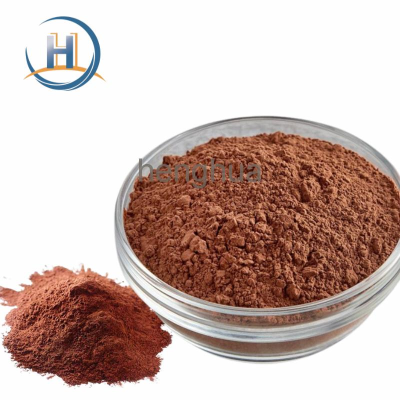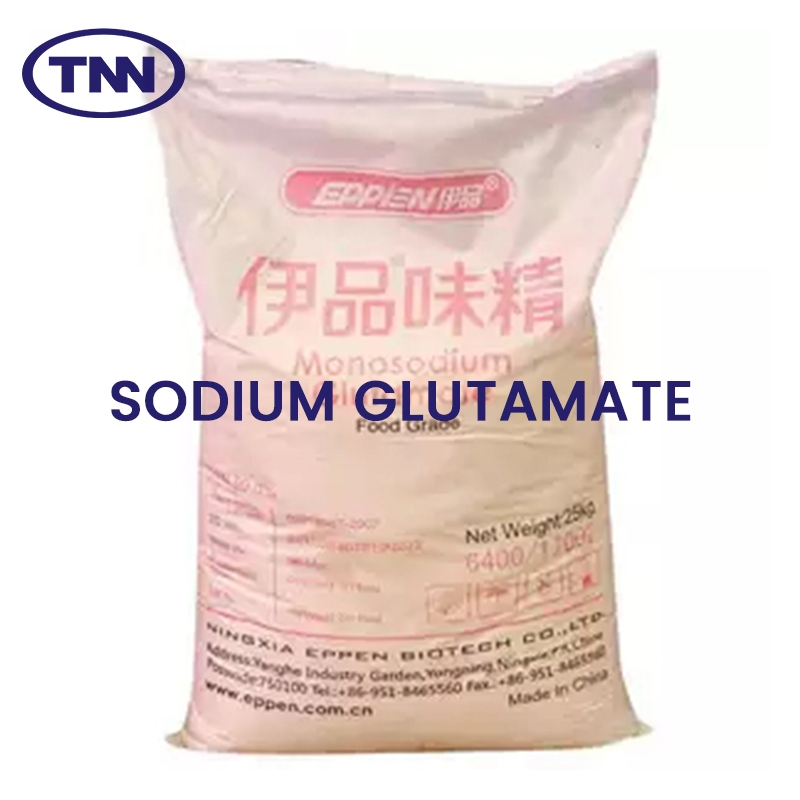-
Categories
-
Pharmaceutical Intermediates
-
Active Pharmaceutical Ingredients
-
Food Additives
- Industrial Coatings
- Agrochemicals
- Dyes and Pigments
- Surfactant
- Flavors and Fragrances
- Chemical Reagents
- Catalyst and Auxiliary
- Natural Products
- Inorganic Chemistry
-
Organic Chemistry
-
Biochemical Engineering
- Analytical Chemistry
-
Cosmetic Ingredient
- Water Treatment Chemical
-
Pharmaceutical Intermediates
Promotion
ECHEMI Mall
Wholesale
Weekly Price
Exhibition
News
-
Trade Service
net/tag_5027.
html" class="zdbq" title="China-related food information" target="_blank">Chinese people pay attention to color, flavor and taste.
Among them, the taste of food is inseparable from a kind of foodmate.
net/tag_345.
html" class="zdbq" title="Seasoning related food information" target="_blank">seasoning -salt.
If you look carefully at the salt at home, you will find that most of the salt is "iodized foodmate.
net/tag_1687.
html" class="zdbq" title="Salt-related food information" target="_blank">salt .
"
In recent years, it has often been said that eating too much foodmate.
net/tag_336.
html" class="zdbq" title="Food information about iodized salt" target="_blank">iodized salt will cause thyroid diseases such as foodmate.
net/tag_870.
html" class="zdbq" title="Hyperthyroidism related food information" target="_blank">hyperthyroidism and thyroid nodules.
Many people even think that Chinese people eat too much iodine and do not need to eat iodized salt.
net/tag_336.
html" class="zdbq" title="Food information about iodized salt" target="_blank">iodized salt will cause thyroid diseases such as foodmate.
net/tag_870.
html" class="zdbq" title="Hyperthyroidism related food information" target="_blank">hyperthyroidism and thyroid nodules.
Many people even think that Chinese people eat too much iodine and do not need to eat iodized salt.
Today is the "National Iodine Deficiency Disease Awareness Day", also known as the "National Iodine Deficiency Disease Prevention Day".
Let's talk about 5 truths about iodized salt together.
Let's talk about 5 truths about iodized salt together.
01
Will you get hyperthyroidism if you eat too much iodized salt?
From a scientific point of view, there is insufficient evidence to say that "iodized salt causes hyperthyroidism".
In some areas with chronic iodine deficiency, there is indeed the problem of hyperthyroidism induced by iodine supplementation.
But the health problems caused by iodine deficiency are much more serious than iodine excess.
But the health problems caused by iodine deficiency are much more serious than iodine excess.
A previous study in Denmark found that the total incidence of hyperthyroidism only increased by 0.
04% in 6 years of iodine supplementation, and this small increase in incidence can still recover spontaneously.
04% in 6 years of iodine supplementation, and this small increase in incidence can still recover spontaneously.
Therefore, the health benefits of eating iodized salt are significantly greater than the possible risks.
It is precisely because of this that the World Health Organization (WHO) will implement an iodine-enhancing policy throughout the world.
It is precisely because of this that the World Health Organization (WHO) will implement an iodine-enhancing policy throughout the world.
Some people may say that after the emergence of iodized salt, the number of patients with hyperthyroidism has indeed increased.
What is going on? In fact, there are many factors that may cause hyperthyroidism, such as environmental factors, genetic factors, emotional factors, etc.
It would be too arbitrary to simply attribute the cause to iodized salt.
What is going on? In fact, there are many factors that may cause hyperthyroidism, such as environmental factors, genetic factors, emotional factors, etc.
It would be too arbitrary to simply attribute the cause to iodized salt.
02
Will iodized salt cause a high incidence of thyroid disease?
At present, there is no evidence that salt iodization is directly related to the increase of thyroid nodules, thyroid cancer and other thyroid diseases.
In fact, the increase in thyroid diseases has a lot to do with the current improvement in detection methods and the increasing emphasis on health, such as thyroid nodules, because there are no symptoms, if it is not for a physical examination, few people will find it.
Data show that the average prevalence of thyroid nodules in our country is 32.
4%, which means that nearly one-third of people have thyroid nodules.
Moreover, more than 90%-95% of the nodules are benign and have little effect on the body, so you usually don't need to worry too much.
4%, which means that nearly one-third of people have thyroid nodules.
Moreover, more than 90%-95% of the nodules are benign and have little effect on the body, so you usually don't need to worry too much.
As for the relationship between iodine and thyroid cancer, scientists have also done a lot of research.
From the current research, there is no conclusive evidence that iodine has an effect on the occurrence of thyroid cancer.
From the current research, there is no conclusive evidence that iodine has an effect on the occurrence of thyroid cancer.
A Swiss study even found that the incidence of thyroid tumors gradually decreased after salt iodization.
The World Health Organization (WHO) also believes that the incidence of thyroid cancer in areas with sufficient iodine intake is lower than in areas with iodine deficiency.
The World Health Organization (WHO) also believes that the incidence of thyroid cancer in areas with sufficient iodine intake is lower than in areas with iodine deficiency.
Therefore, the argument that "salt iodization causes a high incidence of thyroid cancer" lacks scientific basis.
03
Coastal residents don’t need to eat iodized salt?
On the contrary, iodized salt should also be eaten along the coast.
The content of iodine in seafood is indeed relatively abundant.
Therefore, many people think that people in seaside cities do not lack iodine, do not need supplements, and do not need to eat iodized salt.
Only people in inland areas need to eat iodized salt.
Therefore, many people think that people in seaside cities do not lack iodine, do not need supplements, and do not need to eat iodized salt.
Only people in inland areas need to eat iodized salt.
The actual situation may be completely opposite.
As a matter of fact, our country’s research has evaluated urine iodine levels and dietary iodine intake and found that the iodine nutritional status of coastal residents is not as good as that of inland rural areas of the province, such as the proportion of pregnant women in coastal areas of Zhejiang, Shanghai, Liaoning, and Fujian with iodine undernutrition.
It's even as high as 46%!
It's even as high as 46%!
From the actual situation, the risk of iodine deficiency among seaside urban residents is also quite high, and they cannot easily relax their vigilance.
04
Do you need iodized salt if you eat kelp, seaweed and other seafood?
Kelp and seaweed are very helpful in supplementing iodine.
Marine products such as kelp, seaweed, sea fish, shrimps and shellfish are rich in iodine.
Therefore, many people think that people who often eat seafood will not be deficient in iodine and do not need to eat iodized salt.
But in fact, this statement is just an unrealistic myth.
Therefore, many people think that people who often eat seafood will not be deficient in iodine and do not need to eat iodized salt.
But in fact, this statement is just an unrealistic myth.
my country's survey data show that whether in low-water iodine or high-water iodine areas, the contribution of kelp, seaweed, sea fish and other seafood to the intake of iodine is very insignificant, generally not exceeding 4%.
why? Kelp and seaweed are indeed foods with high iodine content.
Appropriately increasing the intake of these foods can supplement some iodine, but their proportion in our daily total diet is too low.
To put it bluntly, everyone eats too little , The help for iodine supplementation is too small.
Appropriately increasing the intake of these foods can supplement some iodine, but their proportion in our daily total diet is too low.
To put it bluntly, everyone eats too little , The help for iodine supplementation is too small.
05
Chinese do not need to eat iodized salt?
We should continue to eat iodized salt.
Many people think that the Chinese people's iodine intake is already high, and there is no need to continue to eat iodized salt.
Some "iodine-free salt" has also appeared on the market.
Some "iodine-free salt" has also appeared on the market.
In fact, this view does not correspond to the actual situation.
First of all, the harm of iodine deficiency to the human body is much more serious than iodine overdose.
Moreover, people at different stages of growth and development have different hazards of iodine deficiency.
· Pregnant iodine deficiency will affect the healthy development of the fetus.
In severe cases, it can also lead to miscarriage, fetal malformation and death;
In severe cases, it can also lead to miscarriage, fetal malformation and death;
· Fetal iodine deficiency may cause irreversible damage to brain development.
The most serious consequence is neonatal cretinism, which is accompanied by lifelong;
The most serious consequence is neonatal cretinism, which is accompanied by lifelong;
· Iodine deficiency in children and adolescence can lead to obstacles such as swelling, mental and physical development;
· Iodine deficiency in adults will cause hypothyroidism and corresponding thyroid diseases.
Secondly, we don't consume a lot of iodine, but we still face the challenge of iodine deficiency.
The results of the national iodine deficiency disease surveillance in 2014 showed that there were no provinces in the country with iodine deficiency or excess iodine.
However, there are still 19 provinces with insufficient iodine intake among pregnant women (median urine iodine <150 μg/L).
However, there are still 19 provinces with insufficient iodine intake among pregnant women (median urine iodine <150 μg/L).
In 2014, the World Health Organization (WHO) conducted a systematic review and analysis on the effectiveness and safety of salt iodization, and concluded that it is recommended to continue to use salt iodization to reduce goiter, cretinism, cognitive impairment, and iodine deficiency.
Safe and effective prevention and control strategies for risks.
Safe and effective prevention and control strategies for risks.
In the history of the prevention and treatment of iodine deficiency disorders in China, there was a period of severe epidemics of iodine deficiency disorders.
According to rough statistics in the 1970s, there are 35 million second-degree endemic goiters in my country, with a prevalence rate of 12.
85%; typical endemic cretinism is 250,000, with a prevalence rate of 0.
66%.
According to rough statistics in the 1970s, there are 35 million second-degree endemic goiters in my country, with a prevalence rate of 12.
85%; typical endemic cretinism is 250,000, with a prevalence rate of 0.
66%.
According to our environmental survey, most areas of our country are short of iodine in the external environment.
If the salt iodization policy is not adhered to, iodine deficiency disorders may come back.
If the salt iodization policy is not adhered to, iodine deficiency disorders may come back.







